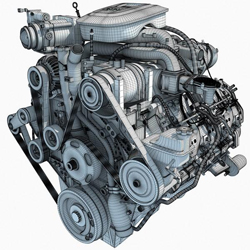B0349 Engine Trouble Code
Meaning of B0349 engine trouble code is a kind of body trouble code and B0349 if your catalytic convertor fails completely, you eventually won't be able to keep the car running. Your gas mileage will also be terrible, so you should try and fix it as soon as you can. Unfortunately, the average replacement cost is around $2,140 and you can't do it yourself unless you're an experienced mechanic.
B0349 Fault Symptoms :
|
If one of these reasons for B0349 code is occuring now you should check B0349 repair processes.
Now don't ask yourself; What should you do with B0349 code ? The solution is here : |
B0349 Possible Solution:

|
Disconnected, dirty or fouled spark plugs are common causes for engines that won't start. Spark plugs typically need to be replaced every season or 25 hours of use. You should also check that the spark plug gap is set properly. If your spark plugs look good, problems with your ignition system can also preventing a spark. These can range from a faulty spark plug lead, shorted kill switch or flywheel key damage. |
B0349 Code Meaning :
| B | 0 | 3 | 4 | 9 |
|---|---|---|---|---|
| OBD-II Diagnostic Body (B) Trouble Code For Engine | Intake Valve Control Solenoid Circuit Low | Throttle/Pedal Position Sensor/Switch A Circuit Intermittent | Injection lump Fuel Metering Control 'B' High (Cam/Rotor/Injector) | Reverse Input Circuit |
The catalytic converter has an oxygen sensor in front and behind it. When the vehicle is warm and running in closed loop mode, the upstream oxygen sensor waveform reading should fluctuate.
B0349 OBD-II Diagnostic Body (B) Trouble Code DescriptionB0349 engine trouble code is about Reverse Input Circuit.Main reason For B0349 CodeThe reason of B0349 OBD-II Engine Trouble Code is Throttle/Pedal Position Sensor/Switch A Circuit Intermittent. |
B0349 DTCs may also be triggered by faults earlier down the line. For example, a dirty MAF sensor might be causing the car to overcompensate in its fuel-trim adjustments. As a result, oxygen sensors are likely to report fuel mixture problems.

